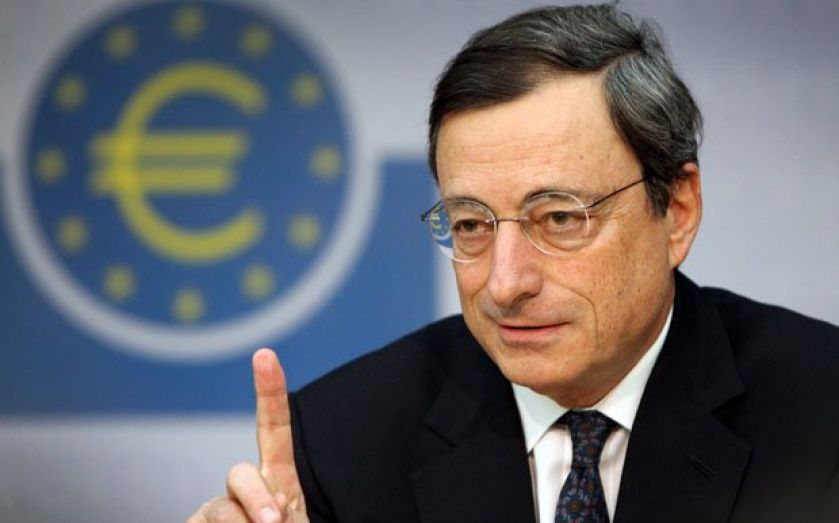Euro crisis flares up

THE EUROZONE crisis could reignite over the summer as political clashes, uncertainty over bad bank assets and growing doubts in the ability of the European Central Bank (ECB) to keep markets calm all start to undermine confidence built up in the last year, analysts warned yesterday.
Deutsche Bank analysts fear a weak commitment to austerity could scare markets. And the struggle for a recovery in the Eurozone shows an increasingly two-speed Europe, with states like Britain starting to gather steam.
The past two summers have both seen the crisis intensify, with Greece getting a second bailout in 2011 and the Italian and Spanish governments nearly facing the same fate last year as their borrowing costs shot up.
In recent weeks Portugal’s government has struggled to come up with a plan to cut its deficit and could end up needing another bailout.
Spain is still mired in recession and its government faces a corruption scandal, while Italy’s new government is accused of wavering in its commitment to getting its budget in order.
And Greek teachers went on strike yesterday, showing the prolonged pain of reforms in the country.
Last year ECB head Mario Draghi announced his outright monetary transactions (OMT) policy, stabilising markets by promising to do “whatever it takes” to save the Eurozone – including buying the debts of any troubled nation which agrees to strict economic reforms.
The OMT has not been used, but acted as a strong backstop to reassure investors. However, its effect may be wearing off as economies have not been reformed and have not recovered.
“The ECB has been able to banish tail risks but not restore growth,” said ING’s Carsten Brezeski. “The first bloom of Draghi’s ‘whatever it takes’ speech is clearly gone. Combined with the OMT programme, it was a game changer for the Eurozone but unfortunately not the endgame.”
Other analysts fear the OMT simply disguised the underlying problems.
“Despite the protection of the OMT, all is not necessarily well beneath the surface in many of the peripheral states,” said Deutsche Bank’s Gilles Moec. “The risk is that political infighting and self-assessment detracts attention from necessary economic adjustments.”
In Italy in particular he fears the government often considers “potentially counterproductive policies.”
New figures from official agency Eurostat show Eurozone debts getting worse despite governments’ efforts. In the first quarter of the year Eurozone government debt rose to 92.2 per cent of GDP, up from 90.6 per cent three months earlier.
The highest level is still seen in Greece at 160.5 per cent, with Italy on 130.3 per cent and Portugal on 127.2 per cent.
And gloomy figures from Ipsos Mori show many European consumers still expect no recovery any time soon, further hitting the chances of reducing the debt burdens.
Just four per cent in Spain, five per cent in France and six per cent in Italy believe their economy is doing well, the report found. That compares with 19 per cent in the UK, 31 per cent in the US and 96 per cent in Norway.
Meanwhile if this autumn’s review of banks’ assets finds a large number of Eurozone lenders still in trouble, chaos around the system could return.
Yesterday the European Banking Authority (EBA) announced some preparations for future bank failures, telling national regulators to monitor bank capital levels more closely.
It wants lenders to submit plans for their capital buffers to regulators by November, for those authorities to stress test the plans and to work on recovery plans for banks whose capital levels fall too low.